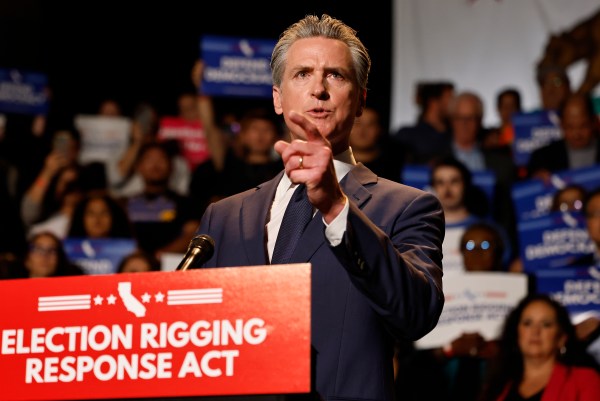Donald Trump brought a zeal for protectionism to the White House not seen since the days of Herbert Hoover. While Joe Biden reversed other Trump policies when he took office in 2021, he quickly surrendered to Trump’s trade policy and now doubles down on that surrender at an inapt time.
In mid-March, the president blasted the anticipated sale of Pittsburgh-based U.S. Steel to Japan-based Nippon Steel, insisting his country must “maintain strong American steel companies powered by American steel workers.” Elements of Biden’s support base, particularly labor unions, welcome his hostility to economic diplomacy. American consumers should not.
According to new data from the Bureau of Labor Statistics, wholesale prices jumped 1.6 percent in the yearlong run-up to February. Surveyed economists largely expected the rate to reach merely 1.1 percent. Meanwhile, consumer prices saw a 3.2 percent increase during that time. Inflation isn’t the nightmare it was in mid-2022, but prices are still climbing enough to subdue hope of near-term interest rate cuts.
While runaway government spending and unsound monetary policy bear the most culpability for recent inflation, Americans pay a nontrivial premium on politicians’ unwillingness to let domestic producers freely compete with foreign ones. Policymakers who fear a backlash over consumer-cost burdens—as Biden certainly does while running for reelection—might not want to worsen them.
Not all elected officials are smart, but virtually all know that unnecessarily reducing supply through trade barriers means less-competitive pricing and therefore costlier products. Anti-trade officeholders justify this by trumpeting the manufacturing jobs in favored industries that supposedly would have ended if not for protectionism. But even these narrow benefits are exaggerated: Manufacturers not only create but consume; trade restrictions burden these businesses with higher capital costs.
How much money does trade ultimately save Americans? A 2019 study by the Federal Reserve Board of Governors determined that imports from China during the 2000s saved the average U.S. citizen $260 per year. Many Americans may nevertheless want the U.S. to forgo commerce with an empire they roundly (and rightly) detest, but they cannot expect to curtail many trade relationships across the globe without real material sacrifice.
In that light, the Biden-Trump trade policy makes no sense. Not only has Biden maintained Trump’s tariffs on Chinese imports, he also declined to revive the planned Trans-Pacific Partnership (TPP) that would have strengthened U.S.-Asia trade relationships outside of China. Biden also implemented new “Buy American” policies directing federal agencies to prioritize procurement of domestically made goods and services, even when foreign companies may offer better deals for the government and, in turn, the taxpayer.
If Biden acts on his opposition to Nippon’s U.S. Steel acquisition, he’ll compound the disservice to Americans he’s already done on trade. He would prevent a foreign entity from running a manufacturing company at a lower cost than domestic operators could. This not only will saddle buyers with higher prices, it won’t even satisfy the protectionists’ usual aim of preserving American jobs: The Japanese company is buying U.S. production facilities to be staffed by U.S.-based workers.
It remains to be seen how strongly Biden will pressure the Committee on Foreign Investment in the United States to intervene against the U.S. Steel sale, which the panel is now reviewing. Trump has already vowed he would halt the transfer if it is not completed by the time he hopes to return to office.
“I would block it,” the Republican promised. “I think it’s a horrible thing, when Japan buys U.S. Steel. I would block it instantaneously.”
Even many of us who never admired Biden thought that he might at least resist Trump’s anti-globalization extremism. A less populist, more sentient Biden did just that as a senator and later as vice president. He voted for the North American Free Trade Agreement as well as permanent normal trade relations with China. While in the Obama White House, he tried to generate support for TPP.
Although Biden and Trump denigrate global commerce, recent polling by the Chicago Council on Global Affairs suggests a strong majority of U.S. voters still support it. They’re just not the ones with the megaphone. Powerful labor bosses can see to it that a presidential candidate suffers when he pursues free trade. But many other Americans suffer when he rejects it.






Please note that we at The Dispatch hold ourselves, our work, and our commenters to a higher standard than other places on the internet. We welcome comments that foster genuine debate or discussion—including comments critical of us or our work—but responses that include ad hominem attacks on fellow Dispatch members or are intended to stoke fear and anger may be moderated.
With your membership, you only have the ability to comment on The Morning Dispatch articles. Consider upgrading to join the conversation everywhere.